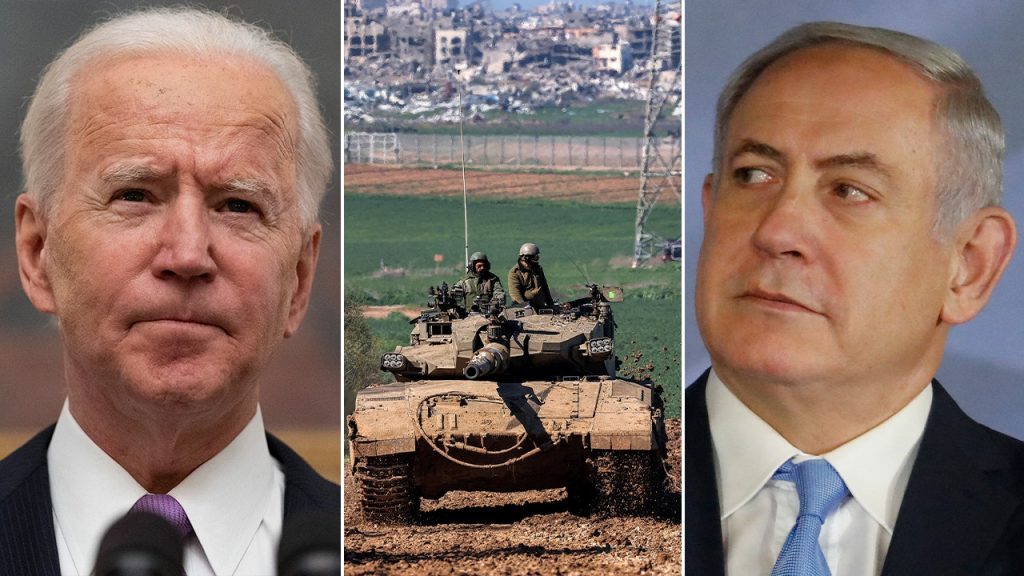President Biden recently issued an ultimatum to Israel, threatening to withhold offensive weapons if the Jewish state launched an invasion of Rafah. In response, rocket attacks were launched on Israel from Rafah, with rockets also fired on Saturday. This led to increased tensions in the region, with Hamas launching rockets at Israeli cities and causing casualties. The decision to withhold weapons has been criticized by some, including former Ambassador to Israel David Friedman, who believes it has emboldened Hamas and put Israel at risk.
Many Israelis view Biden’s decision to pause weapons deliveries as a betrayal of his promise to support the Jewish state with “ironclad” security. Retired General Jack Keane criticized Biden’s decision, calling it “stunning” and suggesting that the President is walking away from Israel. The implications of creating daylight between the U.S. and Israel are concerning, as it could embolden America’s enemies and weaken America’s influence in the region. The State Department did not provide clear answers on how this decision might impact Hamas and Hezbollah, leaving questions about the future of U.S. support for Israel.
The U.S. has stated that it remains supportive of Israel and has provided military assistance and expertise to help them defend against attacks from Hamas and other terrorist groups. However, concerns have been raised about the timing and conditions of U.S. support, particularly in light of the ongoing conflict in the region. The decision to block offensive weapons to Israel has raised questions about the U.S.’s commitment to its allies and the implications of such actions on the ground. Experts warn that this could embolden hostile forces and jeopardize the safety of Americans and Israelis in the region.
The Palestinian terrorist group Hamas has been using hostages as human shields to protect its leaders, including Yahya Sinwar, who is believed to be behind numerous attacks on Israel. With over 100 hostages in its custody, including Americans, Hamas has been able to manipulate negotiations and use hostages as bargaining chips. The international community has been urged to consider the implications of supporting Hamas and Hezbollah in their efforts to undermine Israel and potentially put civilians at risk. The refusal to release hostages and the lack of clear support for Israel’s right to defend itself raises concerns about the long-term stability of the region.
The decision to withhold offensive weapons from Israel has drawn criticism from various quarters, including retired U.S. military leaders who emphasize the importance of unwavering support for the Jewish state. Amid rising anti-Semitism and threats from Iran and its proxies, Israel’s security and stability are paramount for U.S. interests in the region. The perception of weakness and division between the U.S. and Israel could embolden America’s enemies and jeopardize the safety and security of both nations. The ongoing conflict in the region highlights the complex and interconnected nature of international relations and the need for clear and consistent policies to address threats and promote peace.













